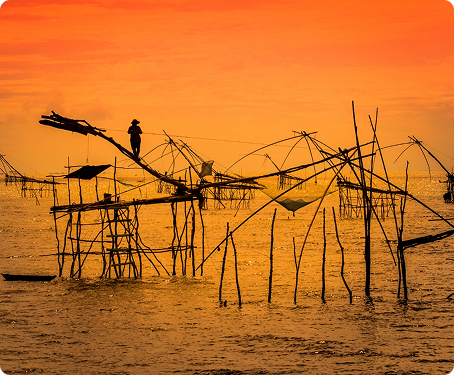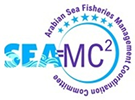Objective of SEA=MC2
- Sustainable Fisheries Management: Develop and implement policies to ensure sustainable fishing practices that protect fish populations and ecosystems.
- Regulatory Compliance and Policy Advocacy: Coordinate with regional and international bodies to enforce fishing regulations and combat illegal, unreported, and unregulated (IUU) fishing. Advocate for policies at the national and international levels that support sustainable fisheries and marine biodiversity.
- Fisheries Research Vessel: Through crowd funding, a “Fisheries Research Vessel” will be obtained to facilitate research on stock assessment, pollution, and various issues concerning common property resources.
- Fisheries Improvement Program (FIP): FIPs engage multiple stakeholders, including fishers, seafood companies, conservation organizations, and governments, to work together towards achieving sustainable fishing practices.
- Boat Certification: Boats, nets, tackles and other systems in the fishing vessel, mariculture and brackishwater farms.
- Data Collection and Research: Promote scientific research and data collection to monitor fish stocks, ecosystem health, and the impact of fishing activities.
- Establishment of referral laboratory: In many states, there are no adequate laboratories equipped to test food samples, water, and other materials from processing plants and exporters. Therefore, a ‘Referral Lab’ with NABL accreditation will be established to address this need.
- Habitat Protection: Identify and protect critical habitats, mangroves and breeding grounds to support fishery conservation efforts.
- To initiate ocean and river clean-up program with the CSR funds
- Stakeholder Collaboration and Capacity Building: Foster collaboration among governments, fishing communities, and other stakeholders to align efforts and share best practices in fisheries management. Enhance the capacity of local agencies and communities to manage fisheries effectively through training and resource allocation.
- Economic Development: Support the economic development of fishing communities through sustainable practices and value-added activities.
- Education and Awareness: Organising International and Regional Workshops/Conferences/Webinars/Writeshops to raise awareness about sustainable fishing practices and the importance of marine conservation among stakeholders and the public.
- Emergency Response: Develop strategies for responding to environmental disasters or events that threaten fisheries, such as oil spills or climate change impacts.

